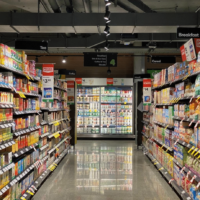What is Premises Liability Law?

You may not have heard the phrase premises liability, but you are probably familiar with accidents that happened on other people’s property. Slip and fall accidents, dog bite injuries, and swimming pool accidents fall under premises liability law. Property owners have a legal duty to ensure that their property is reasonably safe for their guests and customers. When property owners act negligently and their negligence causes another person’s injury, they may be financially liable. Victims of premises liability accidents have a right to bring a lawsuit against the property owner who caused their injuries in Georgia.
Common Types of Premises Liability Accidents
Every day, Georgia residents become injured in accidents while on other people’s property. Some of these accidents are preventable, and if the property owner had used reasonable care, the dangerous condition would not have existed. For example, suppose a property owner knows that a certain product typically leaks onto the floor, but they fail to mop it up or warn the customers about the hazard. In that case, it is foreseeable that a customer will slip on the liquid and become injured.
These types of slip and fall accidents are preventable, but many property owners do not take the time to ensure that their properties are safe for visitors. Numerous situations lead to a premises liability lawsuit, but some of the most common are the following:
- Defective stairways
- Ceiling collapses
- Slip and fall accident
- Slip and fall injuries due to icy or wet stairways
- Negligent security cases that lead to assault
- Poorly lit staircases or parking lots
- Building code and fire safety violations
- Supermarket accidents
- Dog or animal attacks
- Sidewalk tripping Falls
- Elevator accidents
- Swimming pool accidents
- Dog bite accidents
Proving Liability in a Premises Liability Lawsuit
If you have been injured in an accident on another person’s property, you may be entitled to compensation. You will need to file a premises liability lawsuit in court against the property owner or manager involved in your case. Plaintiffs who file a case must prove that the defendant or defendant’s negligence caused their injuries. In Georgia, a successful premises liability case requires that the plaintiff show, by a preponderance of the evidence, the following five elements:
- The property owner owed the plaintiff a duty of care
- The property owner breached the duty of care
- The breach was the actual cause of the plaintiff’s injury
- The breach foreseeably led to the plaintiff’s injury
- The plaintiff suffered damages/injury
Am I Eligible for Compensation?
In a premises liability case, the plaintiff who brings a lawsuit must prove several elements to obtain compensation, also called damages. To determine whether you have a valid case and are entitled to compensation, you will need to prove the following elements by presenting evidence. Plaintiffs must prove all of these elements by a preponderance of the evidence.
Duty of Care
The plaintiff must show that the defendant owned, occupied, or leased the property where your accident occurred. The defendant owed you a duty of care to keep the property reasonably safe from dangerous conditions. If you are a guest or customer on the property, the property owner would owe you a duty of care. If you were a trespasser, it is harder to prove that the property owed you a duty of care.
Breach of Duty
After the plaintiff has established that the defendant was responsible and owed the plaintiff a duty to provide a safe environment, the plaintiff must prove that a breach occurred. A breach of duty happens when the property owner fails in their duties by neglecting to maintain the property and keep it safe from hazards adequately. When the defendant had a reasonable opportunity to discover and correct a house rich condition on the property but neglected to do so, he or she breached the duty of care.
Causation of the Injury
Next, the plaintiff must prove that the defendant’s breach of duty was the direct cause of his or her injuries. Typically, the plaintiff will need to call eyewitnesses to the stand to testify. They can also provide photographic and video evidence in support of their claim. Providing medical records is important to show that the plaintiff’s injury did not exist before the accident. If the plaintiff had an injury before the accident, but it was exacerbated by the accident, medical records can help demonstrate that fact. The plaintiff may need to call an expert witness to testify that the plaintiff’s symptoms are more severe directly because of the premises liability accident.
Damages
The final element a victim of a premises liability accident must prove is damages. The plaintiff must prove that they suffered damages as a result of their bodily injuries. Damages can include past and future medical bills, lost wages, and pain and suffering. Successful plaintiffs are entitled to economic and non-economic damages in Georgia. Economic damages are those that are easier to quantify with a dollar amount, such as medical expenses.
Our legal team can help you carefully estimate all of your future medical expenses and lost income so you can seek the amount of damages that you deserve. Plaintiffs can also seek non-economic damages for non-tangible injuries they suffer due to the accident, such as pain and suffering, loss of companionship, disfigurement, and more.
Contact a Georgia Premises Liability Lawyer Today
Premises liability lawsuits can cause devastating and catastrophic injuries. One minute a person is shopping in a store, and the next, they have slipped and fallen and are experiencing a severe injury. If you have been involved in an accident on another person’s property, it is worth it to consult with a skilled lawyer. In Georgia, you only have a limited amount of time to file a personal injury lawsuit. Contact the experienced premises liability lawyer James Rice to learn more about your legal rights.
